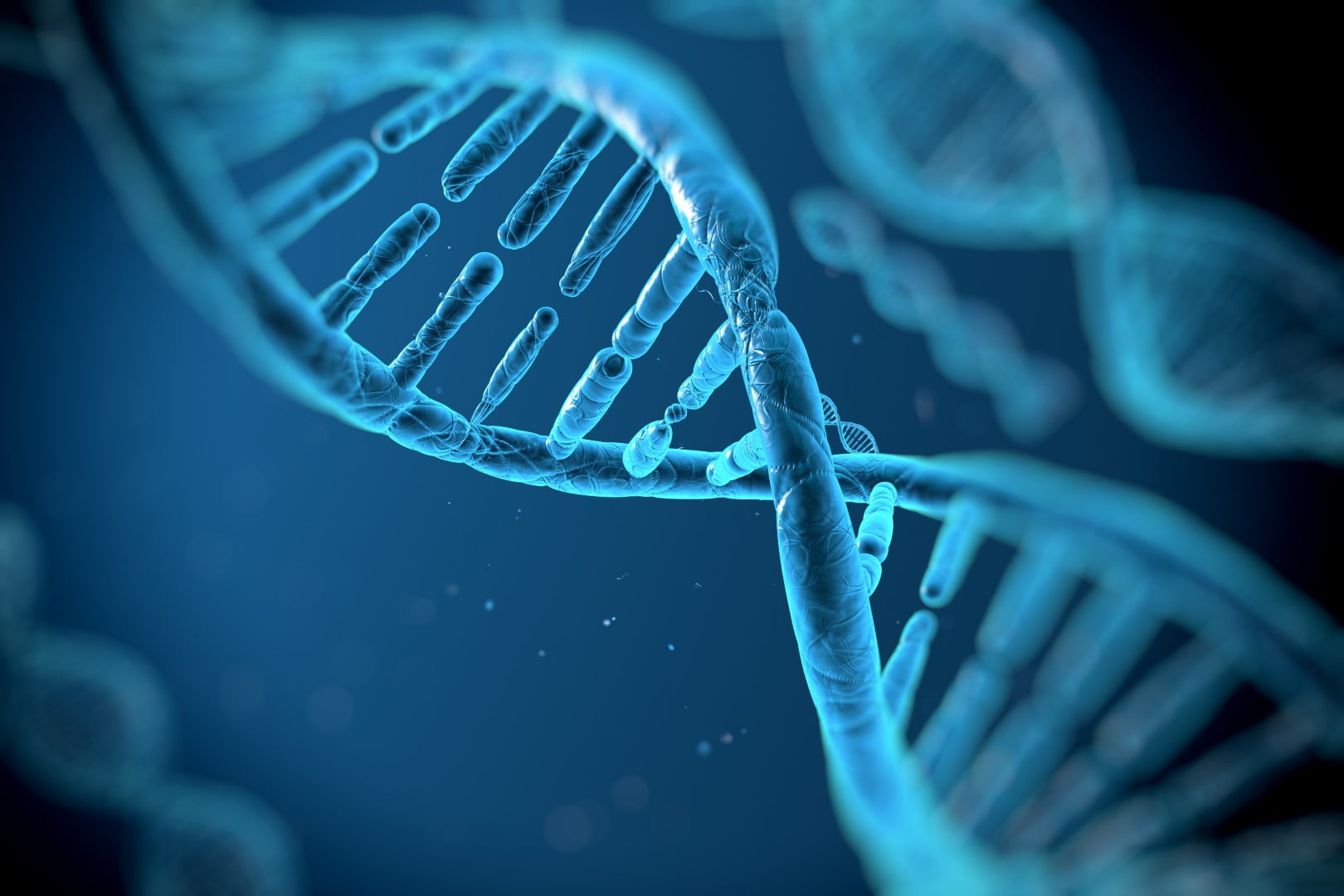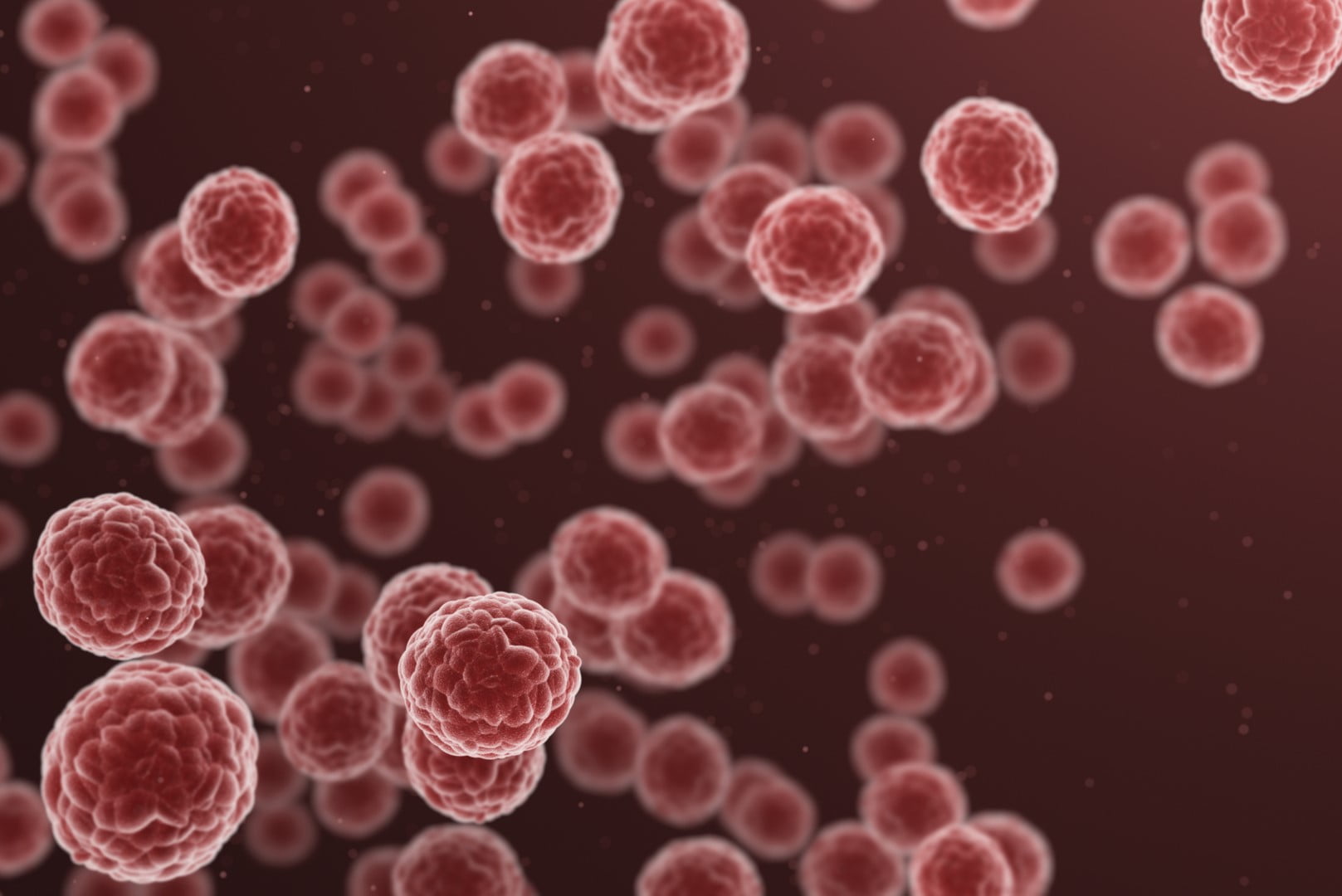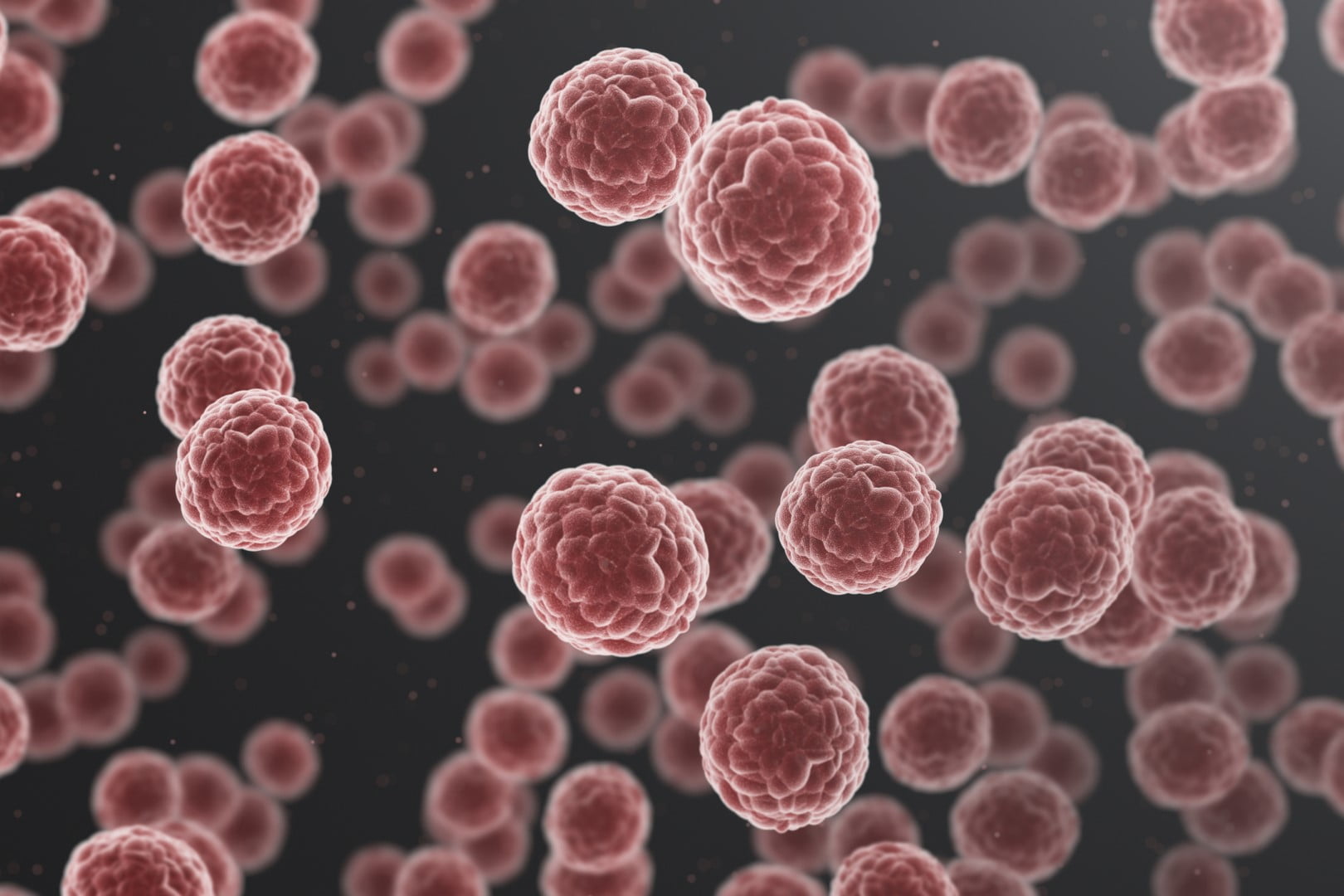BioPhenyx exploits its proprietary, ground-breaking CRISPR-Select technology to determine effects of mutations and drugs in cell cultures, as reported in Nature Genetics. CRISPR-Select provides fast and – importantly – conclusive results by introducing and quantitatively tracking a mutation of interest and neutral, internal control mutations. This is done in a cell culture of interest and in the absence or presence of drug. Typical analyses take 2-4 weeks from start (introduction of mutation in cell culture) to finish (final, conclusive results). CRISPR-Select can answer key questions relevant for drug development, as illustrated in below examples
Validation of drug targets
Customer wants to know if a protein is important for cancer cell viability or proliferation to validate the protein as a drug target.
At the start of the assay, BioPhenyx performs gene editing in a cell culture of interest. We insert a mutation in the gene for the target protein, which mimics the desired drug action on the protein (e.g., catalytic inhibition, protein elimination or breakage of protein-protein interaction). Simultaneously, BioPhenyx introduces neutral, internal control mutations in the gene for the protein in the same cell culture. Thus, the cell culture contains cells with mutation-of-interest as well as cells with neutral control mutations, which effectively are normal (wild-type) cells.
At defined intervals (such as day 2 and day 14 after editing), BioPhenyx quantitatively determines if, and to what extent, cells with the drug-mimicking mutation disappear from the cell culture, as compared to the control mutated (i.e., normal) cells present in the cell culture.
This analysis will conclusively determine, if the protein of interest is essential for the cells in study and how it may be drugged.
Determination of drug responder genotypes (biomarkers)
Customer wants to know if a drug blocks viability or proliferation of cells with a specific disease mutation to identify responders to customer’s drug.
At the start of the assay, BioPhenyx introduces the disease mutation and neutral control mutations in different cells in a cell culture of interest. Cells are then cultured in the absence or presence of drugs.
At defined intervals (such as day 7 and day 14 after editing), BioPhenyx quantitatively determines if, and to which extent, the drug selectively has killed or arrested the cells with the disease mutation, as compared to the control mutated (i.e., normal) cells present in the cell culture.
This analysis will conclusively determine, if a specific genotype confers sensitivity to a drug, which is useful for patient stratification in clinical trials or companion diagnostics development.
Multiple uses of CRISPR-Select in drug development or genetic diagnostics
CRISPR-Select has extremely versatile analytic capabilities. In analyses related to the examples above, BioPhenyx can (i) determine if a genetic sequence variant (mutation) found in a patient is pathogenic or benign, (ii) determine if a drug acts via its intended target to elicit its effects, and (iii) define drug resistance mechanisms. All the above analysis can also be performed in vivo (xenografted mice). Furthermore, by using FACS-based versions of CRISPR-Select, BioPhenyx can determine effects of candidate drug targets, drugs or mutations on any physiological/pathological state or biochemical process of a cell, for which a FACS marker is available.
CRISPR-Select results have unmatched reliability
CRISPR-Select provides conclusive results, not achievable by any other CRISPR, base editing or prime editing approach due to our patented, internal control approach, as described in Niu et al, 2022, Nature Genetics:
The neutral, internal control mutations ensure that any observed effect of the mutation-of-interest, and drug effect if measured, can be ascribed conclusively to the mutation-of-interest or the drug. The control effectively normalizes out any potential CRISPR off-target effects, dish-to-dish, or other experimental confounders. Furthermore, the control allows accurate quantitation of mutation/drug effects.
In addition, CRISPR-Select incorporates a host of further features that ensure the utmost reliability and accuracy of results:
Knockin analysis – the mutation is analyzed in proper genomic context, avoiding overexpression and similar artifacts.
Cell pool analysis – the mutation is introduced and analyzed in a cell pool over few weeks, thus avoiding use of clonal cell lines and inherent artifacts of clonal variation and allowing analysis of essential genes. Furthermore, results are based on hundreds or thousands of independent cells with mutation-of-interest or internal control mutation.
Absolute quantitation of cells with mutation-of-interest and internal, control mutation – Our targeted NGS quantitation of cells with mutations provide the exact number of cells on which results are based – thus it can be controlled that a statistically relevant number of cells underlie the results.
Real case examples (*results shown in our Niu et al., 2022 Nature Genetics article)
Cancer
- We determine BRCA1/BRCA2 variants (mutations) that specify patient response to PARP inhibitor therapy*
- We define drug resistance mechanisms and on-target actions of KRAS, FGFR4 and estrogen receptor drugs in lung, liver, and breast cancer cells*
- We determine variants (mutations) in KRAS*, PI3K*, PTEN*, P53, ATM and MLH1 as cancer driver mutations.
Metabolic
- We define variants (mutations) that cause hypercholesterolemia and atherosclerosis.
- We define pathogenic variants (mutations) in Fanconi anemia (FA), a rare inherited condition that leads to bone marrow failure while also affecting other tissues.
Inflammation
- We determine disease relevance of variants (mutations) in genes promoting inflammatory bowel disease by analyzing human primary colon epithelial organoids*.
Neurologic
- We define pathogenic variants (mutations) in Ataxia-telangiectasia (AT), a rare inherited condition that affects the nervous system as well as other tissues.



